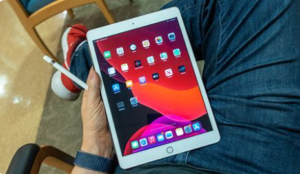Utilizing Apps to Overcome Left Brain Injury: A Path to Rehabilitation and Recovery

What more can we do?
Support Siblings
Resources
Order a Welcome Art Kit for a sibling of a survivor
Join the private Sibling Facebook Group and talk to peers in a caring environment.
The human brain is a complex and delicate organ, responsible for multiple cognitive functions. When a traumatic brain injury occurs, it can have profound effects on a person's abilities, and, depending on the location of the injury, can affect language, reasoning, and memory. Left brain injuries often result in conditions like aphasia, cognitive deficits, and motor impairments. However, advancements in technology continually pave the way for innovative approaches to rehabilitation, with smartphone apps now playing a pivotal role in the overall recovery process.
Left Brain Injury and its consequences:
The left hemisphere of the brain is primarily responsible for language processing, logical reasoning, and sequential tasks. When this area is injured, individuals can experience a range of difficulties, depending on the extent and location of the damage. One of the most common consequences of left brain injury is aphasia, a language disorder that affects a person's ability to communicate effectively. In addition to communication problems, left hemisphere injuries can lead to memory deficits, impaired attention, and difficulties with problem-solving.
The Role of Apps in Left Brain Injury Rehabilitation:
Mobile applications have revolutionized various aspects of our lives, and their potential in aiding left brain injury rehabilitation is significant. These apps can provide a structured and engaging platform for support in between therapy sessions, addressing the specific challenges faced by individuals with left hemisphere damage. There's a variety of targeted apps and the differences they can make in supporting recovery alongside therapy:
Language Rehabilitation Apps:
Aphasia is a common outcome of left brain injury that severely hampers a person's ability to speak and understand language. Language rehabilitation apps provide a structured approach to rebuilding language skills and can be customized to suit an individual's needs and progress.
Cognitive Training Apps:
Cognitive deficits often accompany left brain injuries, affecting memory, attention, and problem-solving abilities. Apps designed for cognitive training offer a wide range of exercises and games that challenge these cognitive functions. They can be tailored to progressively increase difficulty, helping individuals regain cognitive skills over time.
Speech Therapy Apps:
For those with speech difficulties resulting from left brain injury, speech therapy apps can be invaluable. Users can practice at their own pace and track their progress, making therapy more accessible and motivating.
Assistive Communication Apps:
In cases where communication is severely impaired, assistive communication apps can be a lifeline. These apps allow users to express their thoughts and needs using text-to-speech or symbol-based systems. They can be customized with the user's preferred vocabulary and can even integrate with wearable devices for easier communication.
Memory Aids and Reminders:
Left brain injury can lead to memory deficits, making it challenging to remember important information and tasks. Apps designed for memory aids and reminders can help individuals stay organized and on top of daily responsibilities. These apps can send notifications and alerts for appointments, medications, and other essential reminders.
Rehabilitation Tracking Apps: Monitoring progress is crucial in the rehabilitation process. Rehabilitation tracking apps allow individuals and their healthcare providers to record and analyze their progress over time. These apps can help set goals, track achievements, and make adjustments to the rehabilitation plan as needed.
Mental Health and Well-being Apps:
Coping with the consequences of a left-brain injury can be emotionally challenging. Mental health and well-being apps offer tools for managing stress, anxiety, and depression. Techniques such as mindfulness meditation and relaxation exercises can help individuals improve their overall mental health and resilience.
Conclusion
While left brain injuries can be life-altering, with the assistance of smartphone apps, individuals can embark on an empowering self-directed path to rehabilitation and recovery to support their progress in between therapy sessions. These apps offer a flexible and accessible means of addressing the specific challenges posed by left hemisphere damage. Whether it's regaining language skills, rebuilding cognitive functions, or enhancing communication, the digital tools available today can significantly improve the quality of life for those affected by left brain injuries, offering hope and support to individuals on their journey to recovery.